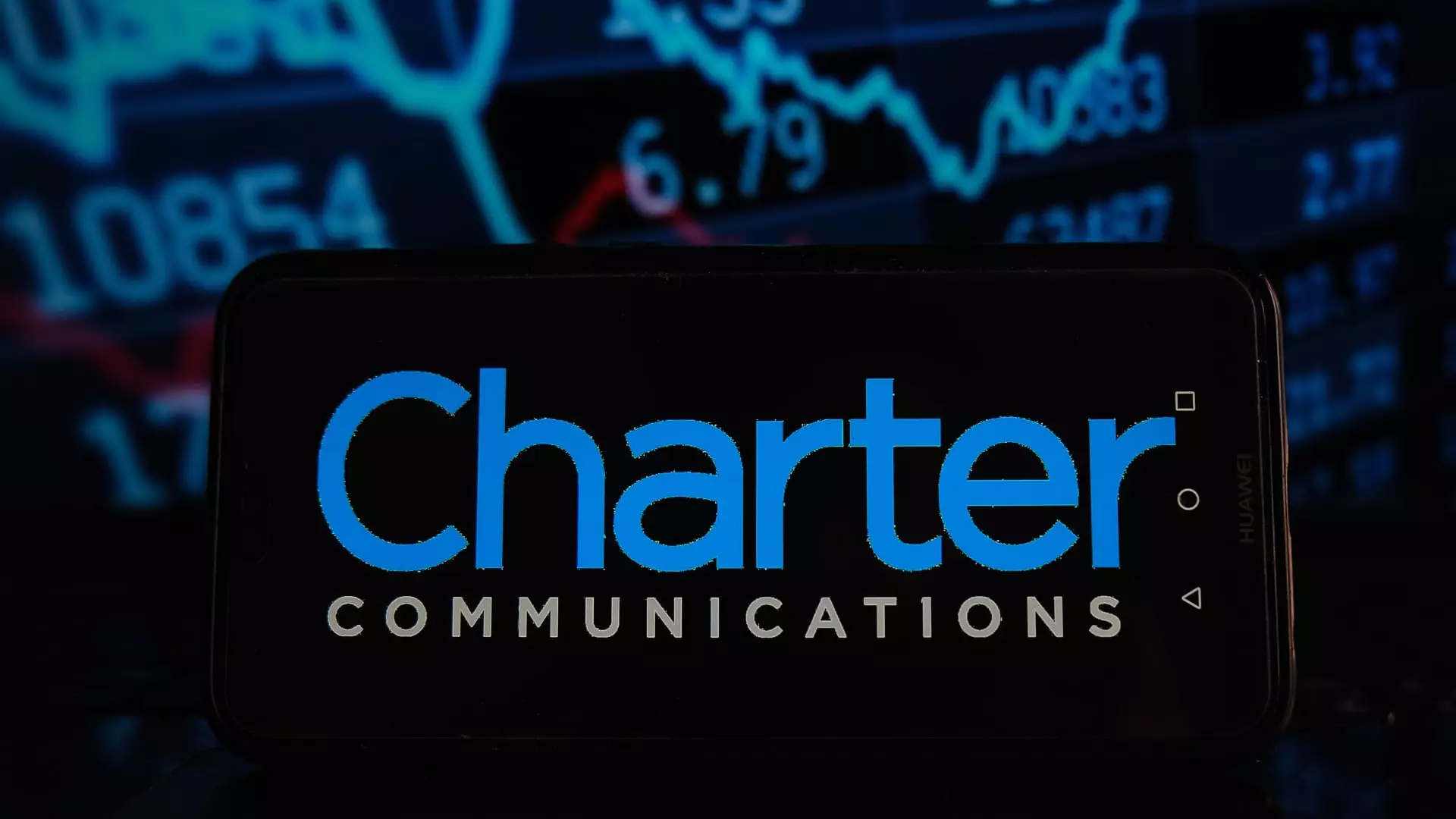The recent announcement of a merger between Charter Communications and Cox Communications, valued at a staggering $34.5 billion, resonates like an alarm bell within the broadband industry. This event marks not only one of the most significant corporate consolidations in recent memory but also raises pressing questions about the future of consumer choice and competition in the market. With the broadband sector already grappling with aggressive competition from wireless alternatives and emerging technologies, this merger has the potential to exacerbate existing issues rather than resolve them.
Both companies come with substantial customer bases, collectively harnessing millions of subscribers across various states. Charter, the second-largest public cable entity, boasts 30 million broadband customers, but the trend is troubling. The company has lost 60,000 from its customer base just in the last quarter alone. On the other hand, Cox, as a privately-run enterprise, maintains a foothold as a major player in the broadband market. Yet, even this strategic union may not adequately prepare them for the competition posed by 5G and fixed wireless internet services that continue to gain traction.
The Erosion of Consumer Choice
What should be worrisome for consumers is the diminishing landscape of choice emerging from this merger. The cable industry has long been characterized by a lack of options, and the consolidation of two hefty players arguably tightens the stranglehold on consumer preferences. With fewer competitors in the market, the merged entity may feel less pressure to innovate or enhance service offerings. As traditional cable TV bundles continue to decline, will this marriage of convenience restrict the creative alternatives consumers desperately need?
Moreover, as Charter and Cox aim to shift their focus to mobile offerings as a retention strategy, one can’t help but sense an impending urgency to beef up their mobile prowess. This pivot may not fully cater to the nuanced needs of consumers who are turning to partnerships between smaller providers who specialize in nimble, customer-focused services. A one-size-fits-all solution from the merged giant could lead to more dissatisfaction among users in an era where personalization is king.
The High Cost of ‘Synergies’
Although the companies laud projected yearly cost synergies of around $500 million within three years of closing, one can approach this announcement with skepticism. History shows us that when large corporations pursue their version of ‘efficiency,’ it often translates into layoffs, cut services, and diminishing customer service standards. When companies streamline operations under the guise of synergies, it’s often the consumer who bears the brunt of these decisions.
With Charter’s CEO Chris Winfrey remaining at the helm, one wonders whether the company is truly committed to enhancing user experiences, or merely focused on the bottom line. The centralized model may seem efficient in theory, but it may stifle local responsiveness and flexibility in operations. This is a considerable risk when competing in a landscape that is increasingly defined by rapid technological change.
Pricing Pressures and Market Dynamics
In structuring this merger, questions about pricing strategies arise. Given the combined market power of Charter and Cox, will they choose to leverage their new-found dominion to elevate prices? The competitive environment forces the hand of companies to balance profitability against customer loyalty; however, it’s a calculating game that often favors the shareholders over the consumers. As Charter seeks to bundle its services, combined pricing models may obscure true costs, which could promote a false sense of value that ultimately leaves customers dissatisfied.
The reality is that the merger could facilitate price increases that hurt everyday consumers, especially those already juggling tight budgets amid rising inflation. The telecommunications industry’s trend towards consolidation has not often rewarded consumers with lower prices or better service, and suspicions run high that this time will be no different.
Long-Term Implications for Innovation
While the immediate focus rests on financial metrics and cost efficiencies, the long-term implications for innovation deserve scrutiny. With two ancient titans merging, will either have the incentive to push boundaries and innovate? History suggests that large entities are less inclined to risk investment in fresh ideas as they cling to proven revenue streams; a paradigm shift that stifles creativity and the emergence of new technologies in the telecommunications space.
As we navigate this potential merger, we must remain vigilant in evaluating how this consolidation shapes the market landscape moving forward. The Charter-Cox deal stands as a pivotal chapter in an ongoing battle between huge corporate ambitions and the fundamental needs of the consumer. With the stakes at an all-time high, the balance could tip unfavorably for those reliant on diverse, competitively priced, and personalized services in an era defined by rapid change.

